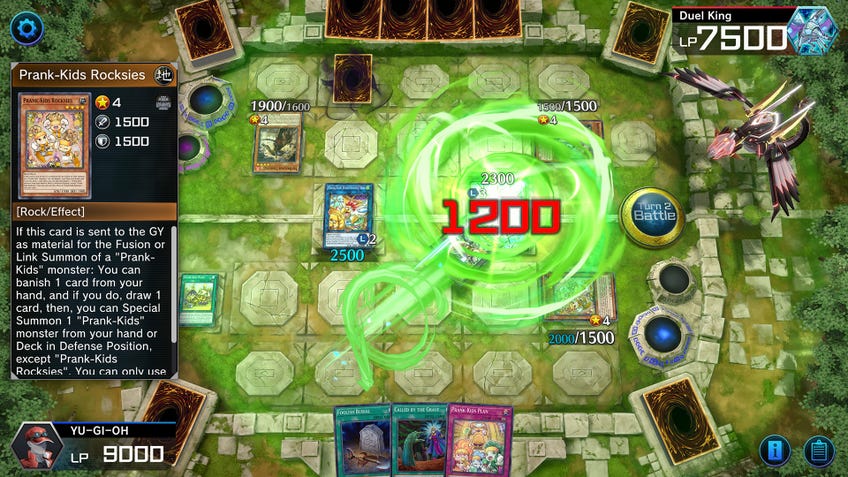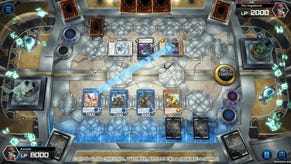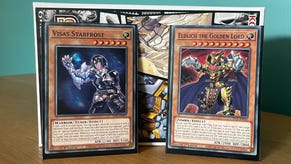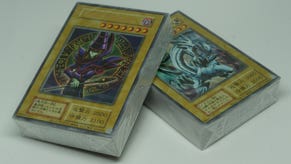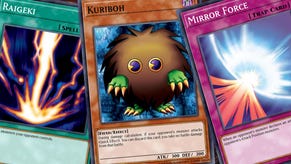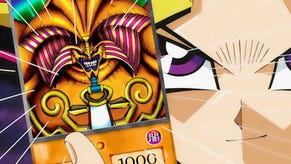Yu-Gi-Oh! Master Duel finally makes the trading card game more inviting than intimidating
Caught in the trap.
Unlike fellow nineties trading card games Magic: The Gathering and Pokémon, the Yu-Gi-Oh! TCG has developed a reputation over the years as being impenetrable for players who haven’t already been fans for at least a decade.
While MTG and even Pokemon hide complexity in the limitless deck combinations of their vast card libraries - now totalling tens of thousands of unique cards - Yu-Gi-Oh! is somewhat different in that the game’s core rules appear to get increasingly more difficult to parse with every new set.
Magic: The Gathering’s central loop has remained largely untouched for decades - you play lands to acquire mana, which is used to play creatures and spells, which do exactly what they say on the card. Pokémon’s battles are instantly familiar to anyone who’s played the video games. In Yu-Gi-Oh!, the central action of summoning monsters has fractured from a fairly simple tribute - where cards already on the field are discarded to bring in higher-level powerhouses - to a litany of different ways to summon cards, often with inscrutable names like Xyz, Synchro, Link and Pendulum.
With no universal resource like MTG’s mana or Pokémon’s energy to tie everything together, individual cards end up doing the heavy lifting, leading to an intimidating learning curve for players as they encounter each of the thousands of unique cards and their effects.
This is combined with gameplay that puts long combo chains and reaction-based activation at its heart, making it difficult for newcomers to understand exactly what should happen when - or how they went from their full 8000 life points to zero in the space of a single turn. In the Yu-Gi-Oh! trading card game, the anime series’ iconic catchphrase “You just activated my trap card” would be uttered so many times in a single round that you’d be hoarse by your second turn.
It’s an issue that publisher Konami knows all too well, having introduced a more beginner-friendly variant in the form of Speed Duel - based on the mobile app Duel Links - several years ago that boiled duels down to lightning-fast, five-minute fights by stripping almost all of the complexity out of the core rules.
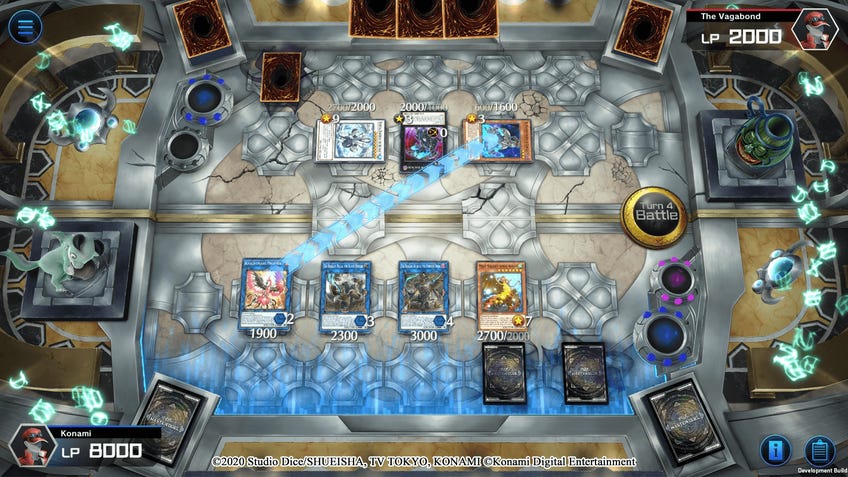
Having collected Yu-Gi-Oh! cards as a kid, but barely played - knowing my difficulty in grasping the game decades later, it’s not hard to see why - Duel Links and Speed Duel succeeded in getting me to finally fall down the Yu-Gi-Hole as an adult. I found myself entranced by the blistering pace of summoning monsters to its condensed battlefield, with one opening in your opponent’s defence leading to a sudden win. It was a card game sword fight - one where I could finally see the blades moving, instead of just the closing sheath and bloodspray.
Despite sinking hours into Duel Links, and facing real-life humans across an actual table in Speed Duel, I still found myself getting creamed by veteran players - sometimes in a single turn - when I dared to venture into the app’s online matches. It didn’t matter - I could finally understand why I was being beaten, instead of being left befuddled by the disappearance of all of my cards and one-hit KO.
Even with my Duel Links/Speed Duel experience, Yu-Gi-Oh!’s full ruleset remained a beast I couldn’t bring myself to grapple with. I dabbled in sets here and there, but rarely dared to dive into the deep end of playing - when I could even find someone willing to learn alongside me, that is. Matches would be punctuated by long exchanges of “Am I doing this right?” muttered from behind rules references, slamming the brakes on the card game’s speed and slowly whittling away any fun in summoning enormous robots, dragons and magicians.
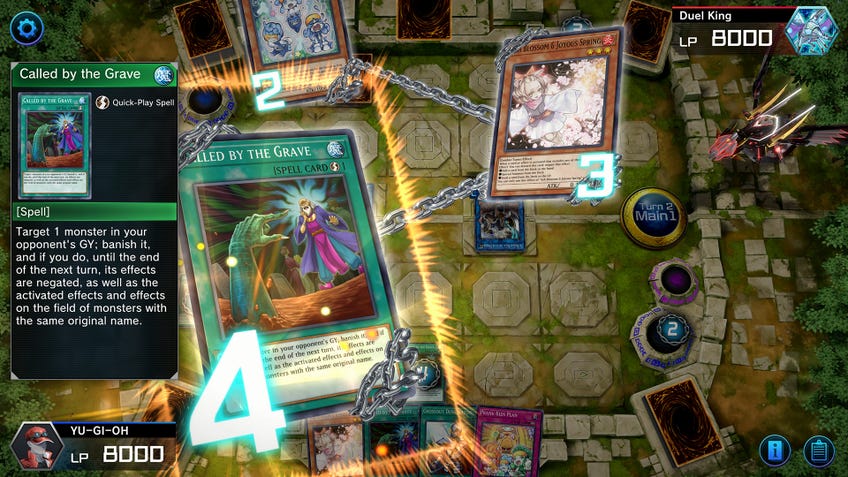
That is, until last week’s release of Yu-Gi-Oh! Master Duel, the TCG’s latest - and extremely popular - translation into a digital app. Unlike Duel Links, Master Duel is the whole of Yu-Gi-Oh!’s ruleset - and a huge swathe of its card library, though a number of cards are yet to be implemented in the 10,000-plus collection.
From the off, Master Duel makes a strong first impression. It presents card duels with the kind of visual punch you’d hope for from a card game based on an anime, with each side of the animated battlefield cracking as players take damage, final attacks landing with bright explosions (and scrolling text down each side confirming it’s the killer blow) and each type of summon having its own visual flair as the cards meld together in a ritual, fusion or similar. You can even customise your half of the field with different backgrounds, from green fields to glowing lava - which look lovely - and equip a friendly monster as a companion to cheer you on from the sidelines. (Click on them for a fun little reaction.) In short, it’s a delight to simply watch.
Of course, we’re not just here to watch - though you can spectate online matches if you like. We’re here to d-d-d-duel. Master Duel offers up a series of short campaigns inspired by particular cards and decks that typically introduce a new concept through gameplay before throwing you into a full duel with an AI opponent.
It’s a nicely accessible setup - though, if you’re totally new to Yu-Gi-Oh!, the tutorials aren’t as well structured as they perhaps could be. There are multiple occasions where you might be using cards for several battles, learning through trial and error, before the game pops up a helpful window to explain exactly what’s going on. A number of actions also can’t be cancelled once selected (but before being executed), making it easy to accidentally force yourself to sacrifice monsters because you misunderstood exactly what a card or effect required.
Even so, digitising Yu-Gi-Oh! instantly makes it easier to appreciate why the card game has retained such a passionate player base for more than two decades. With the pressure of remembering specific rules and timings taken away by the app’s helpful presentation - cards glow different colours based on what you can do with them, and the game pops up a helpful notification if you can set off a trap or spell during your opponent’s turn - I was able to start enjoying the rhythm of setting up combos, laying down traps and cascading my lower-level monsters into game-winning heavyweights through each of the game’s summoning styles.
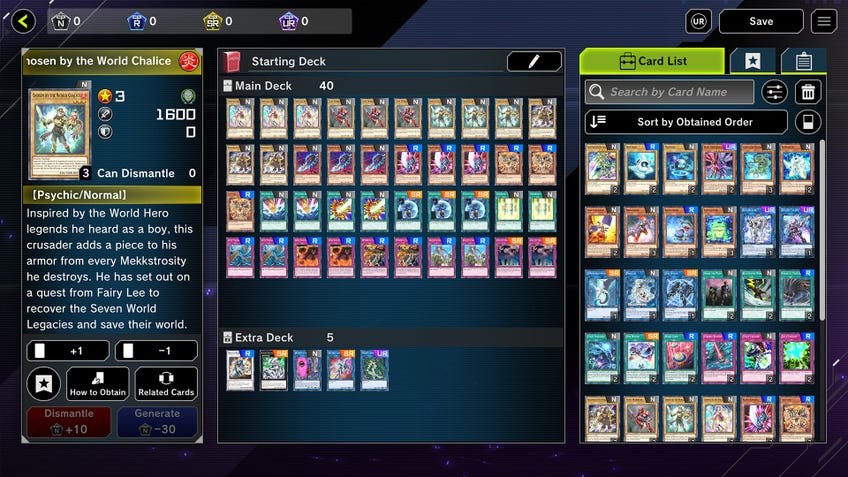
Learning the ropes is made easier by the game’s structure decks, each of which focuses on a general concept - whether it’s fairly straightforward dragons or the more advanced Pendulum mechanics, which alter cards’ effects based on their position on the battlefield. While none of the decks is strong enough to stand up against custom builds - as you’ll quickly discover if you duel online - they do a solid job of letting you learn as you go through the solo mode.
When you have grasped the basics, Master Duel allows you to indulge in one of the best parts of any collectible card game: opening packs. Like Magic: The Gathering Arena, the free-to-play app features an economy built around gems that can be acquired through play or via real-money microtransactions, before being spent on virtual packs, a timed duel pass for unlocking bonus items via ranked play and accessories such as companions, card sleeves and battlefields.
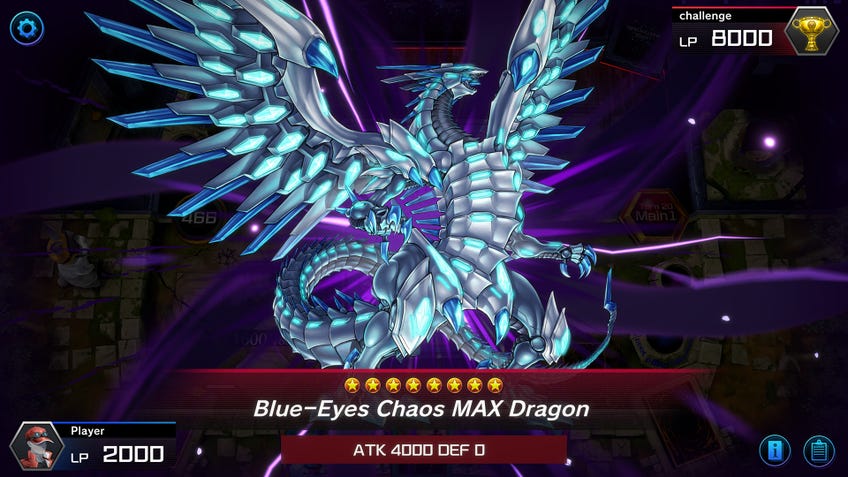
Fortunately, Master Duel is fairly generous with its gems; without investing a single penny, I’ve already opened dozens of packs a handful of hours in. The pack opening animation is, as these things tend to be, gloriously extra but pleasingly so. Blue, golden or rainbow light fills the screen, hinting at the rarity of the cards within, which the player must flip over to reveal - rarer cards glow and pause for a moment first, adding to the excitement of seeing what you’ve pulled. Some boosters unlock other secret packs - timed packs that pull from specific themed sets, but cost the same as any other pack.
When it comes to putting a deck together, Master Duel offers a database of existing decks for players to copy to their own library - some of which are pulled from elsewhere, as they include cards not yet implemented in the app. In theory it’s a great way to avoid the headache of putting your own tournament-ready deck together, but the database currently has no easy way to filter by cards you already own or assign decks custom names or descriptions, leading to a time-consuming search by individual cards and tags before going through each deck to see exactly what it has. When you do find a deck, you can at least help fill it out by crafting missing cards using the resource of CP, which is obtained by dismantling cards you don’t want or need - a welcome change from hoping you pull the right card from a booster.
Master Duel’s presentation and ease of play - albeit with some remaining bumps along the learning curve - have finally hooked me into the card game proper. Each evening, I’ve found myself gleefully bouncing from duels to pulling more cards, and have even braved ranked duels online - with mixed success, admittedly. It’s the most accessible I’ve ever found Yu-Gi-Oh!, managing to strip back much of the TCG’s intimidating complexity at first before layering it back on top at a fairly digestible pace.
With the promise of more packs - and that shiny Blue-Eyes White Dragon - always around the corner, and the hope that my newfound knowledge and appreciation of the card game will only grow as I continue to play, Yu-Gi-Oh! finally has me on board after years of tiptoeing around its appeal. And I plan to stay here for a good while to come.
